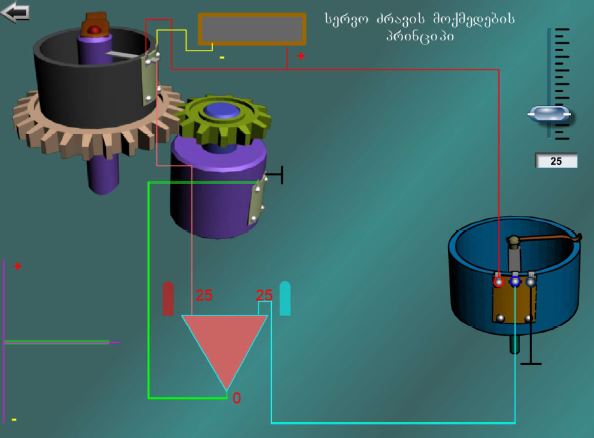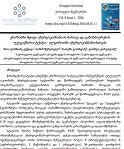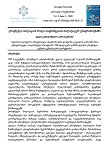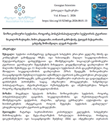Rock Displacement Control

Downloads
This paper presents an in-depth analysis of the development of an intelligent system aimed at monitoring and preventing landslide-prone areas. The paper highlights the importance of information processing in modern technologies, especially the role of analytical technologies in decision-making, which is critical for systems such as security systems. The research focuses on the development of three innovative sensors specifically designed for monitoring landslide-prone areas. These are:
- Hall effect sensor: This system measures ground displacement and deformation, which provides early detection of approaching landslides.
- New type of tilt sensor: This sensor uses the principle of immersing electrodes in a liquid and measures changes in the tilt of rocks with high accuracy.
- A new type of sensor for measuring precipitation: This sensor uses a mercury sensor and measures the amount of precipitation, which is an important factor in the activation of landslide processes. The document discusses in detail a comparative analysis of existing monitoring systems, such as GPS sensors, inclinometers, laser rangefinders, etc. After analyzing the advantages and disadvantages of each system, the study presents a new inductive method for controlling rock displacement, which is based on electromagnetic induction and uses flat coils. This method provides accurate determination of the direction and magnitude of rock movement. The results of the study highlight the accuracy, efficiency and reliability of the created system, which makes it a valuable tool for monitoring and preventing landslide processes. The use of the system will contribute to reducing the risk of natural disasters and protecting human lives.
Downloads
Fraden, Jacob. Handbook of Modern Sensors: Physics, Designs, and Applications. 5th ed. Cham: Springer, 2016.
Abelashvili, N., Otkhozoria, N., Otkhozoria, V., & Akhlouri, E. (2024). Diagnosing the stability of large-scale processes using fractal structure analysis of time series. International Science Journal of Engineering & Agriculture, 3(4), 30–37. https://doi.org/10.46299/j.isjea.20240304.03
Nona Otkhozoria, Vano Otkhozoria, & Shorena Khorava. (2022). Search for an extremum using the steepest descent method under the conditions of experimental errors. World Science, (2(74). https://doi.org/10.31435/rsglobal_ws/28022022/7785
Nona Otkhozoria, Nino Tsiklauri, Vano Otkhozoria. (2024) Selection of Mathematical Optimization Methods for Solving Engineering Practice Problems . Georgian Scientists, 6(2), 286–293. https://doi.org/10.52340/gs.2024.06.02.30
Fraden, Jacob. Handbook of Modern Sensors: Physics, Designs, and Applications. 5th ed. Cham: Springer, 2016.
Abelashvili, N., Otkhozoria, N., Otkhozoria, V., & Akhlouri, E. (2024). Diagnosing the stability of large-scale processes using fractal structure analysis of time series. International Science Journal of Engineering & Agriculture, 3(4), 30–37. https://doi.org/10.46299/j.isjea.20240304.03
Nona Otkhozoria, Vano Otkhozoria, & Shorena Khorava. (2022). Search for an extremum using the steepest descent method under the conditions of experimental errors. World Science, (2(74). https://doi.org/10.31435/rsglobal_ws/28022022/7785
Nona Otkhozoria, Nino Tsiklauri, Vano Otkhozoria. (2024) Selection of Mathematical Optimization Methods for Solving Engineering Practice Problems . Georgian Scientists, 6(2), 286–293. https://doi.org/10.52340/gs.2024.06.02.30
Copyright (c) 2025 Georgian Scientists

This work is licensed under a Creative Commons Attribution-NonCommercial-NoDerivatives 4.0 International License.


























































































































































































































